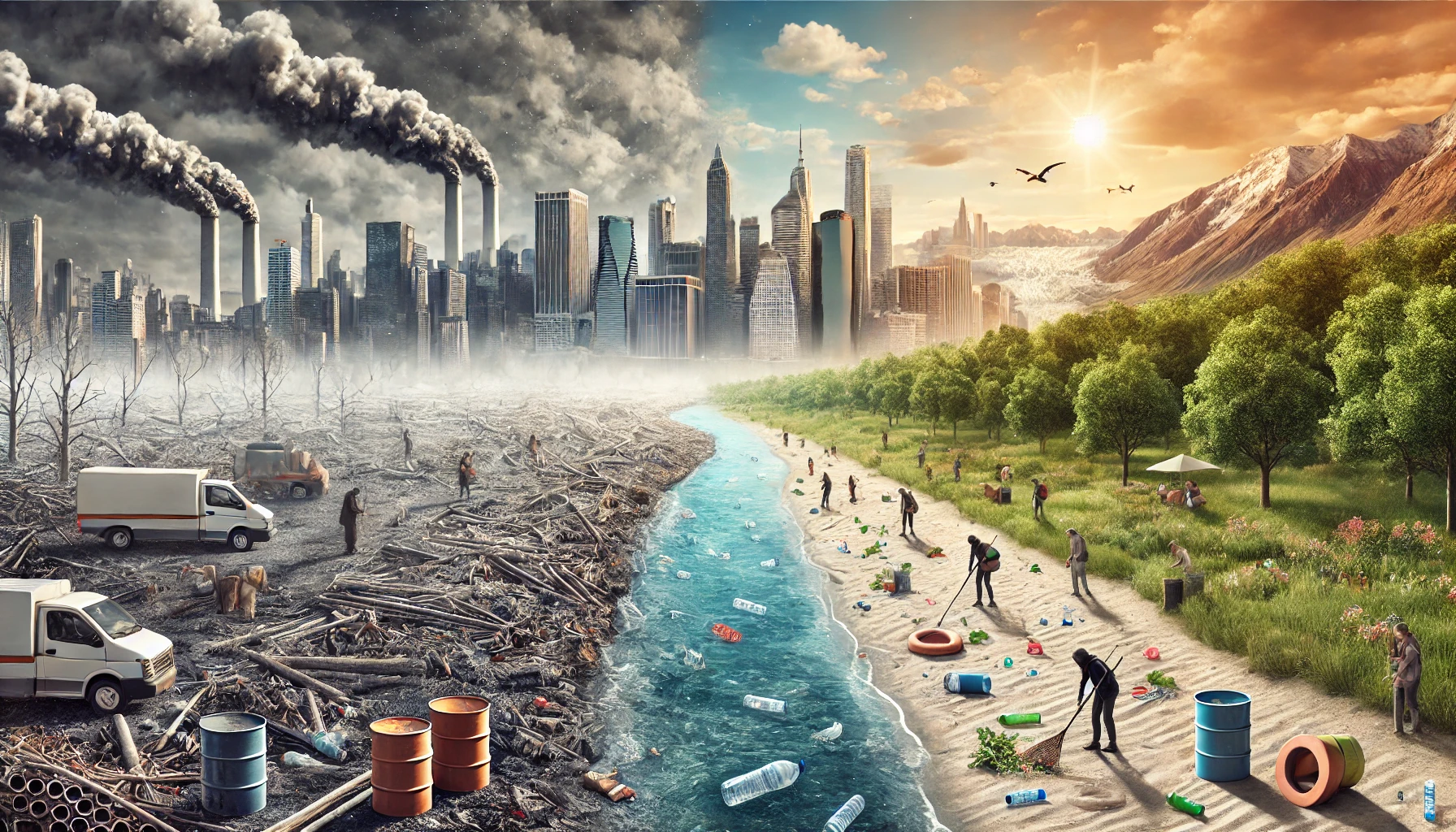As we step into 2025, the planet faces escalating environmental challenges that demand urgent attention. From climate change to biodiversity loss, these issues threaten ecosystems, economies, and human well-being. Understanding and addressing these major challenges is crucial to ensuring a sustainable future.
Top Environmental Challenges of 2025
1. Accelerating Climate Change
The impacts of global warming are intensifying, with extreme weather events, rising sea levels, and prolonged droughts becoming more frequent. The failure to meet emission reduction targets has put the Paris Agreement’s goals at risk. These factors combine to present one of the major environmental challenges of 2025.
2. Biodiversity Loss
Deforestation, habitat destruction, and overexploitation of resources are driving species extinction at an alarming rate. The loss of pollinators, marine species, and forest ecosystems is disrupting ecological balance and food security. In 2025, addressing these challenges will be crucial.
3. Plastic Pollution
Despite global efforts, plastic waste continues to choke oceans, rivers, and wildlife. Microplastics have infiltrated food chains, posing health risks to humans and animals. One of the major environmental challenges in 2025 pertains to managing this pollution effectively.
4. Water Scarcity
Nearly half the global population is expected to face water stress in 2025. Unsustainable water use, pollution, and climate-driven droughts are depleting freshwater resources. This makes water scarcity one of 2025’s major challenges.
5. Fast Fashion’s Environmental Toll
The fashion industry remains one of the largest polluters. Wasteful production processes, excessive water consumption, and reliance on synthetic fibers contribute to the crisis. This industry’s environmental impact is one of the major challenges of 2025.
6. Urbanization and Air Pollution
Rapid urbanization has led to increased air pollution, with cities struggling to meet air quality standards. Health problems linked to polluted air, such as respiratory diseases, are on the rise. This is another significant challenge to address in 2025.
7. Food Waste
One-third of all food produced globally is wasted, contributing to greenhouse gas emissions and resource depletion. Addressing inefficiencies in the food supply chain is critical. Food waste remains one of the key environmental challenges in 2025.
Strategies to Tackle These Challenges
- Transition to Renewable Energy: Accelerate the adoption of clean energy sources to reduce greenhouse gas emissions.
- Conservation Efforts: Strengthen efforts to protect natural habitats and endangered species through global collaboration.
- Circular Economy Practices: Promote recycling, reduce single-use plastics, and encourage sustainable consumption. These approaches will help address major environmental challenges of 2025.
- Water Management: Implement efficient water usage policies and invest in desalination technologies.
- Awareness Campaigns: Educate consumers and industries about sustainable practices and their benefits.
The Role of Individuals and Governments
While governments and corporations have significant roles in addressing these challenges, individual actions also matter. From reducing waste to adopting sustainable lifestyles, every effort counts toward building a greener planet and meeting the major environmental challenges of 2025.
2025 presents an opportunity to act decisively and collaboratively to mitigate these environmental threats. Together, we can ensure a sustainable and resilient future for generations to come.


2 thoughts on “Major Environmental Challenges of 2025: Addressing the Global Crisis”